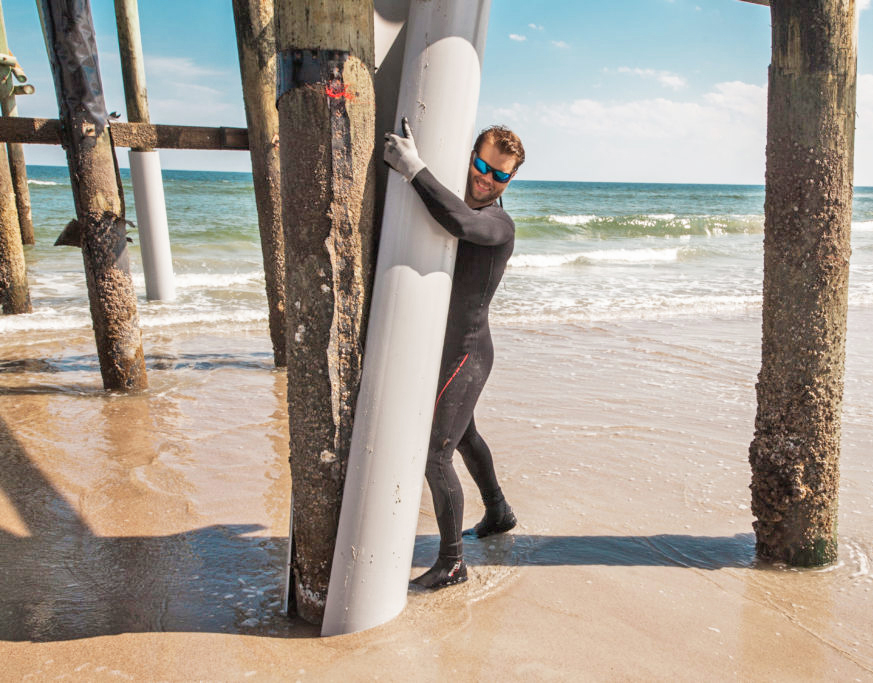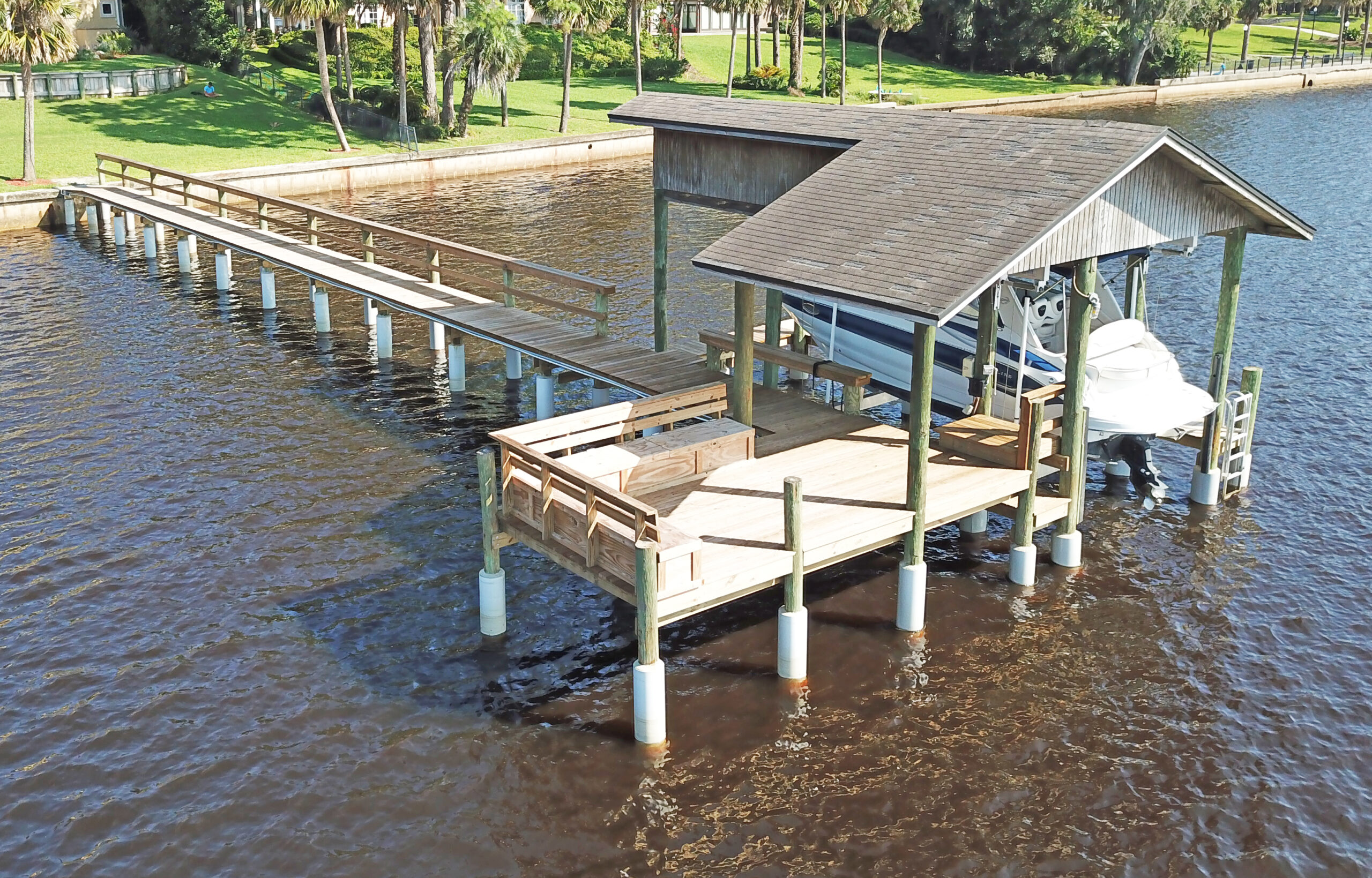Eco-Friendly Solutions for Marine Construction: Vinyl Bulkheads and Beyond
In recent years, the need for sustainable solutions in construction has grown immensely, especially in marine environments. As developers and contractors seek alternatives that reduce environmental harm while maintaining structural integrity, innovative products like vinyl bulkheads and Ecopile marine pilings are taking center stage. These eco-friendly solutions not only provide practical benefits but also help preserve delicate ecosystems, making them ideal choices for marine construction projects. In this blog post, we will explore the benefits of these sustainable materials, how they contribute to reducing environmental impact, and why they are a wise choice for modern marine construction.
The Importance of Eco-Friendly Marine Construction
Marine construction presents unique challenges due to the sensitive environments in which these projects are carried out. Building structures like bulkheads, docks, and piers involves interaction with both land and water, often disturbing local marine life and contributing to water pollution. Traditional construction materials, such as untreated wood or steel, can degrade over time and release harmful substances into the environment.
By choosing eco-friendly solutions, we can mitigate these impacts while ensuring the structural integrity of marine projects. Eco-friendly materials reduce the risk of contamination, minimize maintenance, and help protect marine habitats. Vinyl bulkheads and Ecopile marine pilings are two excellent examples of such materials that are making waves in sustainable marine construction.
Vinyl Bulkheads: The Eco-Friendly Alternative
Vinyl bulkheads are rapidly becoming a popular choice for shoreline stabilization and marine construction, thanks to their sustainability, durability, and low maintenance. Bulkheads play a crucial role in protecting coastlines, docks, and waterfront properties from erosion, and vinyl provides a modern, eco-friendly approach.
Key Benefits of Vinyl Bulkheads
- Durability and Longevity
Vinyl bulkheads are highly resistant to rot, rust, and corrosion—issues that often plague traditional materials such as wood and steel. Unlike treated wood, vinyl does not require harmful chemical preservatives to withstand the harsh marine environment. This resilience not only makes vinyl bulkheads more cost-effective in the long run but also reduces the need for frequent repairs, minimizing disruption to marine ecosystems. - Reduced Environmental Impact
Unlike traditional bulkhead materials that may leach chemicals into the surrounding waters, vinyl bulkheads are non-toxic and environmentally safe. They do not require chemical treatments, making them an ideal option for preserving water quality and ensuring the health of local marine species. By reducing the need for harmful coatings, vinyl bulkheads help prevent the contamination of both soil and water. - Low Maintenance
Vinyl bulkheads require minimal maintenance compared to their wooden or steel counterparts. This is particularly important in marine environments, where maintenance work can disturb local wildlife and habitats. Vinyl’s resistance to UV radiation and saltwater makes it a hassle-free option, requiring less frequent interventions, and thus helping preserve the surrounding environment. - Aesthetic Appeal
Vinyl bulkheads are available in a range of colors, which allows for an aesthetically pleasing solution that can blend in with natural surroundings. For residential and recreational properties, this versatility provides both functional and visual benefits, ensuring shoreline structures are both effective and attractive.
Ecopile Marine Pilings: A Sustainable Foundation
Another standout eco-friendly option in marine construction is the use of Ecopile vinyl-fiberglass composite marine pilings. These pilings are specially designed to offer a long-lasting, sustainable alternative to traditional wood pilings.
Key Benefits of Ecopile Marine Pilings
- Resistance to Marine Borers
Marine borers are wood-eating organisms that can cause significant damage to traditional wooden pilings. Ecopile marine pilings, being made from a composite of vinyl and fiberglass, are naturally resistant to these pests. This helps ensure the longevity of marine structures without the need for chemical treatments, which are often harmful to marine life. - Lightweight and Easy Installation
Ecopile pilings are much lighter than traditional wood or steel pilings, making them easier to transport and install. This not only reduces the carbon footprint associated with transportation but also means that installation can be performed with less heavy equipment, reducing disturbances to the surrounding environment. - Long Service Life
The durability of Ecopile pilings means that they have a much longer service life compared to traditional materials. Resistant to the harsh conditions of marine environments, these pilings do not degrade, rust, or rot, which helps to reduce maintenance and replacement costs. By opting for longer-lasting materials, the need for frequent interventions is minimized, which means less disruption to marine habitats. - Recyclable Materials
One of the most significant benefits of Ecopile pilings is that they are made from recyclable materials. This means that when their service life eventually ends, the materials can be repurposed or recycled, reducing the environmental impact of disposal. By using recyclable materials, Ecopile helps create a more sustainable approach to marine construction.

Additional Eco-Friendly Solutions for Marine Construction
While vinyl bulkheads and Ecopile marine pilings are leading the way in eco-friendly marine construction, there are other products that also contribute to sustainability:
- SnapJacket Piling Repair Sleeves: SnapJacket piling repair sleeves are an innovative solution that allows damaged pilings to be repaired instead of replaced. By encapsulating the existing piling in a protective sleeve, SnapJacket eliminates the need to remove old pilings, reducing waste and preserving the marine environment.
- Polymer Coated Wood: Polymer coated wood is another eco-friendly option for marine construction. This wood is coated with a protective layer of polymer, which helps prevent rot and extends the life of the material. It is ideal for docks, piers, and other marine applications where exposure to saltwater is a concern.
The Future of Sustainable Marine Construction
The shift towards eco-friendly marine construction materials is a critical step in preserving our water environments for future generations. Vinyl bulkheads, Ecopile marine pilings, SnapJacket repair sleeves, and polymer coated wood are all innovative products that help reduce the environmental footprint of marine construction projects.
By selecting eco-friendly products, developers and contractors not only protect marine habitats but also invest in more durable, low-maintenance materials that save costs over time. At Building Products Plus, we are committed to providing solutions that promote sustainable construction without compromising on quality or performance. Contact us today to learn more about our range of eco-friendly marine construction products and how we can help make your next project a success.
Building Products Plus
https://maps.app.goo.gl/s5adFtUvAiqzbgTB6
12317 Almeda Rd, Houston, TX 77045, United States

